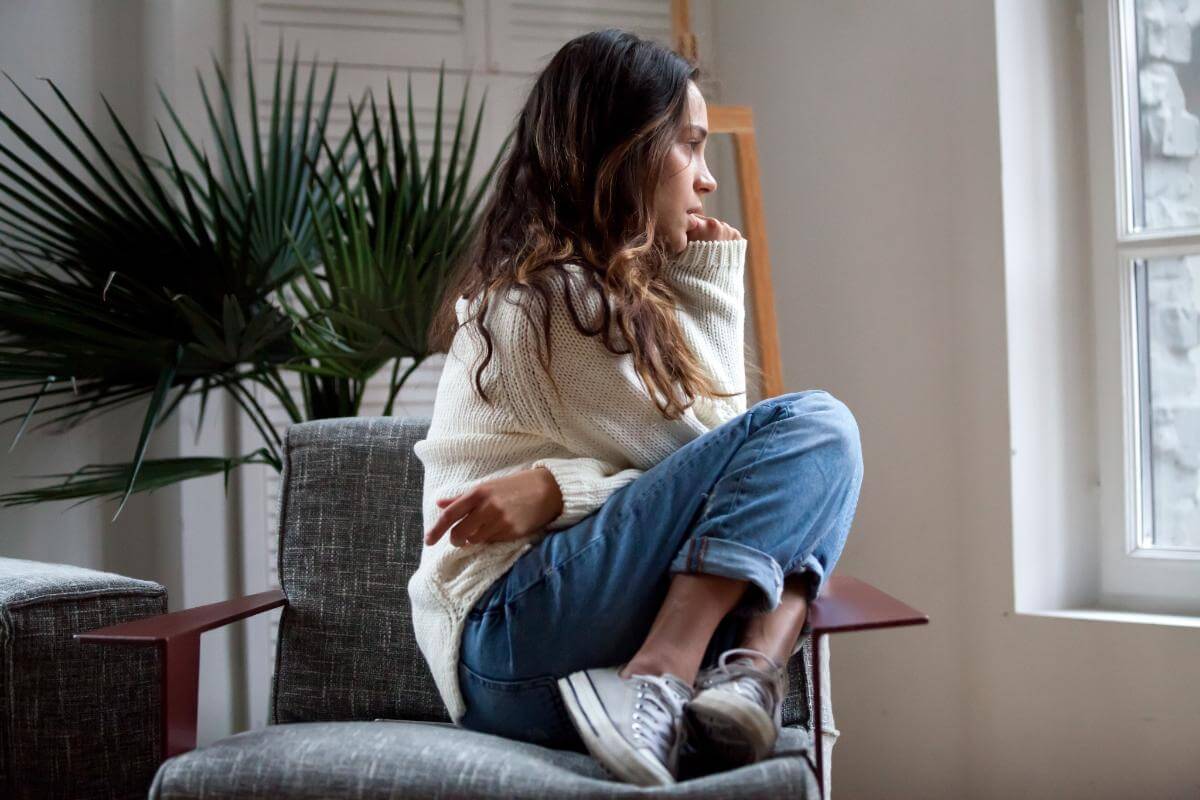Many patients struggle with addiction and co-occurring mental health conditions. Anxiety is one of these, but if you are struggling with one of the five main types of anxiety, you can get treatment for both. At Beaches Recovery, we treat your addiction and offer an anxiety treatment program while helping you achieve a healthy life.
Our experienced addiction therapists teach you to deal with the challenges that addiction and co-occurring disorders, including anxiety, might pose. With your health in mind, our staff designs individualized treatment plans, which include holistic and evidence-based treatments and therapies. While receiving treatment, you also learn the coping skills to manage your anxiety when you return to your normal life.
Symptoms of Anxiety
The primary symptoms of an anxiety disorder are excessive worry and stress about a range of topics, activities, or events. In most cases, this stress and worry will last for six months or more, and it will be difficult to control it. Furthermore, the worries shift from one subject to another over time. In addition, at least three cognitive or physical symptoms will accompany the person’s worrying. These symptoms may include:
- Feeling restless or on edge
- Tiredness or exhaustion
- Impaired ability to concentrate
- Feeling that the mind goes blank
- Insomnia or unsatisfying sleeping patterns
- Irritability
- Muscle aches or soreness
Many of these symptoms can be unpleasant, especially if you’re experiencing them over an extended period of time. In addition, there is a range of types of anxiety that a person may experience.
Types of Anxiety
According to the US Department of Health and Human Services at HHS.gov, there are five main types of anxiety. These include:
- Generalized anxiety disorder, in which you experience chronic anxiety and heightened tension and worry, often without really knowing why
- Social anxiety disorder, in which you have intense anxiety and are overwhelmed in normal everyday situations. This can happen in particular settings but can also become extreme and cause isolation.
- Panic disorder, in which you experience sudden extreme fear, with physical symptoms such as nausea, difficulty breathing, and heart palpitations
- Obsessive-compulsive disorder, in which you develop obsessive thoughts and actions and repeat certain rituals to attempt to prevent the anxiety
- Post-traumatic stress disorder, in which you experience intense anxiety based on a traumatic situation, such as war, serious accident, a natural disaster, or a physical assault
Regardless of the type of anxiety that you’re suffering, it is essential to seek treatment.
Anxiety and Drug and Alcohol Abuse Treatment
Treating addiction and co-occurring mental health conditions to help you achieve a healthy, sober life. Dual diagnosis treatment is available and provides the skills you need to treat both. However, as a co-occurring condition, our staff treats anxiety with therapies, such as:
- Cognitive-behavioral therapy
- Dialectical behavior therapy
- Mindfulness-based treatments
- Yoga therapy
- Nutrition therapy
When needed, our physicians also prescribe psychotherapeutic drugs to help you with both your addiction and mental health disorder.
Seek Mental Health Treatment
Many mental health treatment centers offer person-centered treatment options include a variety of programs to help you grow and become healthy. To design treatment plans with your particular needs in mind, mental health professionals chooses from an array of services, including:
- Residential, partial hospitalization, and outpatient treatments
- Individual, group, and family therapy
- Behavioral therapy
- PTSD and trauma therapy
- A 12-step approach
- Fitness therapy
Addiction is not the end of your journey. Even when you are dealing with both addiction and some other types of anxiety, you can get help. Take back control of your life by seeking addiction and anxiety treatment. Begin your journey back to comprehensive health today.

